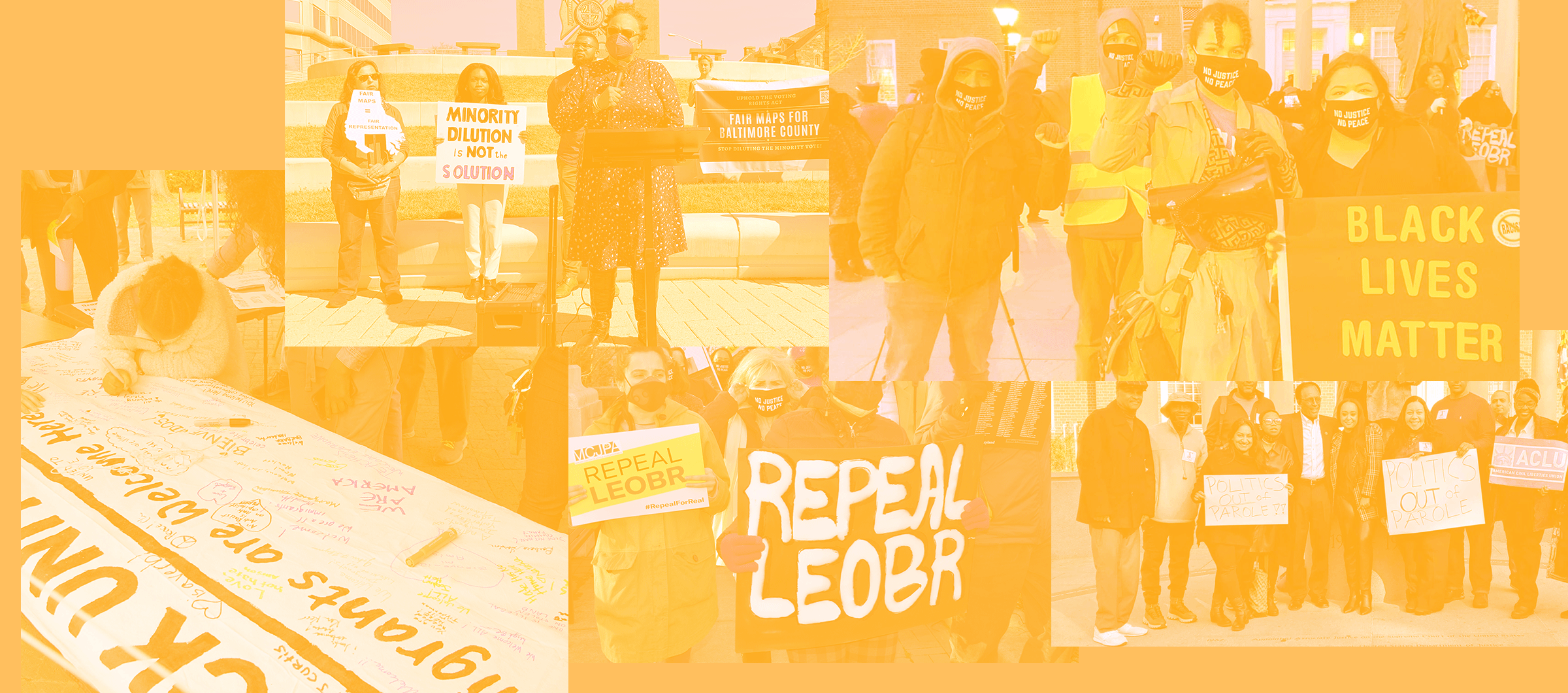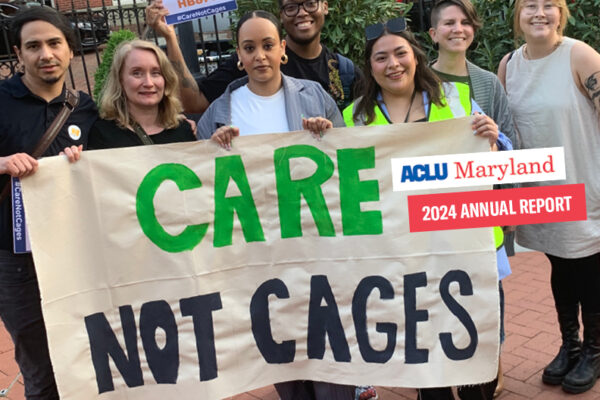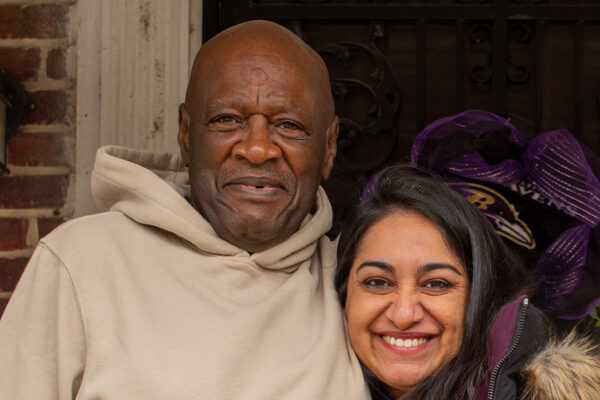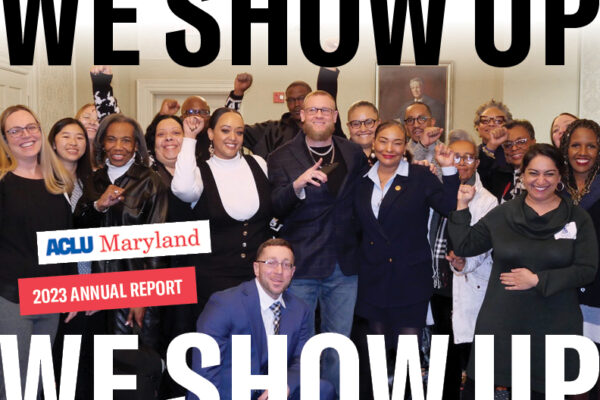Community-Centric Fundraising (CCF) is a movement grounded in equity and brings principles of racial, social, and economic justice into our development plan. CCF calls for a shift in our mindset.
What an increasing number of nonprofits like ours are attempting to do is dismantle white supremacy. However, it’s not enough to acknowledge it and understand that all of our organizations operate within a larger system of white supremacy. We need to take a step further and address how we sustain this oppressive system.
Traditional donor-centered fundraising elevates donors and wealth accumulated through historic and current injustice to hero status. This way of fundraising does not align with who the ACLU of Maryland wants to be as an organization. It requires us to create relationships with wealthy, often-white donors and center their experience, and what they want or are interested in, over the experiences and interests of Black, Indigenous, and People of Color (BIPOC) who have been forced to bear the brunt of systematic threats to civil rights and civil liberties.
The traditional, out-moded approach to fundraising values money above all other contributions. It shies away from difficult conversations about race, wealth, and inequity with our donors. It operates from a scarcity perspective, leading to us compete with our partner organizations. It seeks out and uses the experiences of BIPOC to urge wealthy white donors to jump into savior roles. And it compromises the values we are working to realize as an organization.
The commodification of causes follows a model parallel to institutions of white supremacy.
What is Community-Centric Fundraising (CCF)?
CCF is a movement grounded in equity and brings principles of racial, social, and economic justice into our development plan. CCF calls for a shift in our mindset.
A few examples of CCF’s 10 principles are:
- Fundraising must be grounded in race, equity, and social justice.
- Individual organizational missions are not as important as the collective community.
- Nonprofits are generous with and mutually supportive of one another.
- All who engage in strengthening the community are equally valued, whether volunteer, staff, donor, or board member.
- Time is valued equally as money.
Why do we need to shift?
The ACLU of Maryland has five core values: transparency, collaboration, equity, integrity, and accountability. We are transparent about our goal of dismantling white supremacy. We must collaborate with partners, donors, volunteers, and the community to protect civil rights and civil liberties. We value people’s humanity. We can be counted on to uphold our values.
To balance the scales of justice, fundraising also needs to be a part of race equity work. Embedding CCF in our development plan is part of shifting our culture to be accountable to and best serve our communities.
How do we do it?
- We build intentional relationships with our community of supporters, and we engage them about more than what their next gift will be.
- We center race equity in our internal work by participating in affinity groups, seeking out professional development opportunities that focus on race equity in fundraising, and engaging the national ACLU and other affiliates about anti-racism.
- We use inclusive language in donor communications, emphasizing that our donors are one part of the ACLU community and that we’re all in this work together.
- We ask our donors and foundation partners to apply a race equity lens to their giving, and we ask them to address the root causes of the issues they’re concerned about.
- We support our partners, whether it’s through giving them credit, mentions, and shout-outs in our donor communications or encouraging funders to support our partners if they may be a better fit.
To fulfill our commitment of centering race equity in all aspects of our work, now and increasingly in the future we are devoting our time and resources to furthering the Community-Centric Fundraising movement. We look forward to working with all of our many partners to grow this work!






